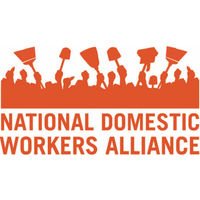As immigrant workers and families with low incomes across the country are disproportionately affected by the economic and health impacts of the COVID-19 crisis, state and local communities are stepping in to fill the gaps left by limited federal relief efforts. Not only do these efforts need to be available and tailored to immigrant community needs, but they also must focus on creating effective outreach to immigrant audiences.
External News
Primary tabs
Researchers at the UC Merced Community and Labor Center find non-citizen women have experienced the deepest job losses. The study is an early signal of how the coronavirus recession is widening California’s economic inequities.
Immigrants have always been a vital part of the social and economic fabric of this country. They have always taken on an oversized share of the frontline work of caring for our sick, our young, and our elderly. So it may not be surprising that immigrant communities are disproportionately impacted by the COVID-19 pandemic.
Americans are eligible for up to $1,200 in coronavirus stimulus money — unless they're married and filing taxes jointly with an immigrant who doesn’t have a Social Security number. Democratic leaders are demanding to change that.
The fallout from the COVID-19 pandemic is proving to be one of the worst economic recessions in American history, and the federal government has rightly taken preliminary steps to mitigate the harm for working-class Americans. As a result of the first three stimulus bills, some economic relief is on the horizon for the average American. Unfortunately, there has been relatively little done to provide relief to a critical yet often overlooked segment of the American labor force: undocumented immigrants
For the past year, I have cared for a 95-year-old woman. I went to her family’s home, watched TV with her, talked to her and gave her medication. We shared stories. I made her food: bread with...
Justice for Migrant Women and other farmworker-serving organizations are raising immediate funds to help keep farmworker families safe from COVID-19 as they work to feed us.
The coronavirus pandemic is exposing what we have always known: our nation’s deep inequalities and broken safety net programs leave millions of people without help or relief.
The coronavirus pandemic has reached the processing plants where workers typically stand elbow-to-elbow to do the low-wage work of cutting, deboning and packing the chicken and beef that Americans savor. Some plants have offered financial incentives to keep them on the job, but the virus’s swift spread is causing illness and forcing plants to close.
Learn more about how you can support in-home care workers, nannies, and house cleaners during this crisis.
